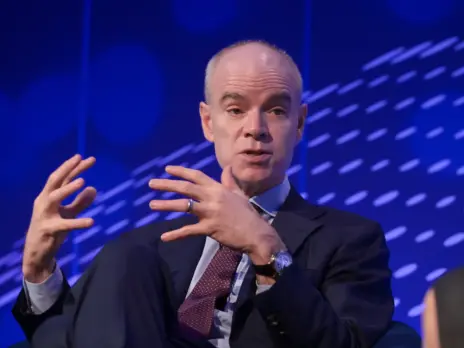
Former News of the World and Daily Mirror editor Piers Morgan today repeatedly denied any knowledge of illegally intercepting voicemails, computer hacking, commissioning private investigators or paying police officers for information.
Morgan instead insisted that ‘ethical determinations were interwoven’into his role as editor of both newspapers and were an ‘omnipresent aspect of daily professional life”.
At one point during his evidence to the Leveson Inquiry this afternoon he was questioned about a recording of a voicemail message left by Sir Paul McCartney for Heather Mills when the couple were suffering problems with their marriage.
It has been widely reported in recent months that Morgan was played a tape of the recording in around 2001.
He was asked by Lord Justice Leveson: “Have you listened to recordings of what you knew to be illegally obtained voicemail messages?” to which he replied: “I don’t believe so, no.”
Morgan refused to reveal any details about of how he heard to tape, claiming it could potentially compromise his source.
“I’m not going to discuss where I heard it or who played it to me,” he said.
Asked if it was from a voicemail recording, he replied: “I believe it was, yes.”
Leveson said to Morgan: “The only person who would lawfully be able to listen to the message is the lady in question or somebody authorised on her behalf to listen to it. Isn’t that right?”
Morgan replied: “Possibly… Sorry, what do you expect me to say?”
Leveson said he could now consider calling Mills to give evidence to see whether she authorised him to listen to the call.
“All we know for a fact about Lady Heather Mills McCartney is that in their divorce case Paul McCartney stated as a fact that she had recorded their conversations and given them to the media,’responded Morgan.
Morgan also claimed in his witness statement that ‘it was not generally a requirement of my work as editor to know the source of the journalist’s information”, adding: ‘Indeed, often conscious efforts were made to limit the number of journalists who knew the identity of the source, with a view to protecting the source’s anonymity.”
He told the inquiry: “I would say the average editor is aware of 5 per cent of what his journalists are up to at any given time on any newspaper.”
Morgan was quizzed about a quote he gave to Press Gazette in 2007 after former NoW royal editor Clive Goodman was jailed for phone-hacking, in which he claimed: ‘As for Clive Goodman, I feel a lot of sympathy for a man who has been the convenient fall-guy for an investigative practice that everyone knows was going on at almost every paper in Fleet Street for years.”
When Goodman was first arrested in 2006, Press Gazette reported in a front-page article that the practice of phone-hacking was believed by Fleet Street insiders to be widespread not just at the News of the World, but at other papers.
Today Morgan said that he was simply commenting on ‘the rumour at the time’and had been out of Fleet Street for several years when he made the comments.
He also said subsequent events had proved him right.
Morgan denied having any ‘personal involvement’in commissioning, selecting, or authorising payments to private investigators. But he admitted that the Mirror would ‘from time to time’engage private investigators for corroborating evidence and fact-checking.
In these situations the use of private investigators would be ‘dealt with through the news desk or the features desk so, like most editors, you just would not get directly involved.”
He added: “But certainly all journalists knew they had to operate within the law. That was enshrined in their contracts of employment.”
In his witness statement he claimed to have no recollection of payments being made to police or public officials, or commissioning anyone to carry out computer hacking.
Morgan was read out a witness statement from former Mirror journalist James Hipwell, who is set to give evidence tomorrow. In it Hipwell said that phone-hacking was widely used by showbiz journalists on the Mirror during the period when Morgan was editor.
Morgan denied any knowledge of this and noted that Hipwell has a criminal conviction for insider dealing.
Email pged@pressgazette.co.uk to point out mistakes, provide story tips or send in a letter for publication on our "Letters Page" blog






